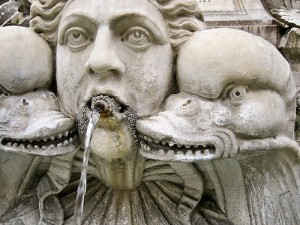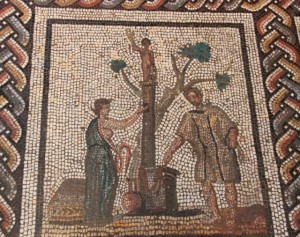The Annoying Orator (Catullus 84)
Catullus’ poem mocking the Roman orator Arrius for the pretentious aspirations in his speech (chommoda instead of commoda) shows that changing small details of one’s speech to seem higher class is an enduring phenomenon, says Eli Goings. He makes an apt comparison with the tendency in English to add an extra h before words like “what” and “why,” and argues that its wit and linguistic playfulness is what sets Catullus 84 apart from most other Latin poems.
Chommoda dīcēbat, sī quandō commoda vellet
dīcere, et īnsidiās Arrius hīnsidiās,
et tum mīrificē spērābat sē esse locūtum,
cum quantum poterat dīxerat hīnsidiās.
Crēdō, sīc māter, sīc līber avunculus eius, 5
sīc māternus avus dīxerat atque avia.
Hōc missō in Syriam requiērant omnibus aurēs:
audībant eadem haec lēniter et leviter,
nec sibi postillā metuēbant tālia verba,
cum subitō affertur nūntius horribilis, 10
Īoniōs flūctūs, postquam illūc Arrius īsset,
iam nōn Īoniōs esse sed Hīoniōs.
Image source: Barbara McManus at vroma.org



